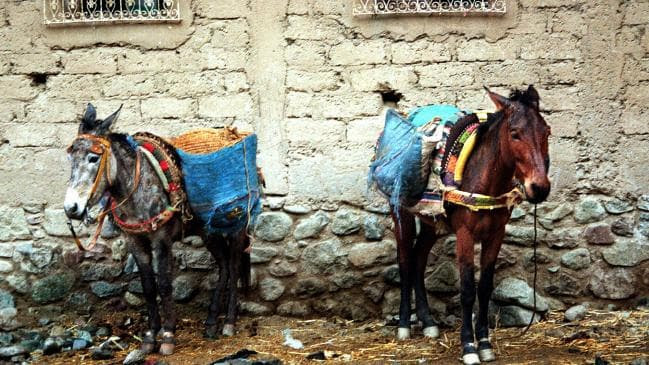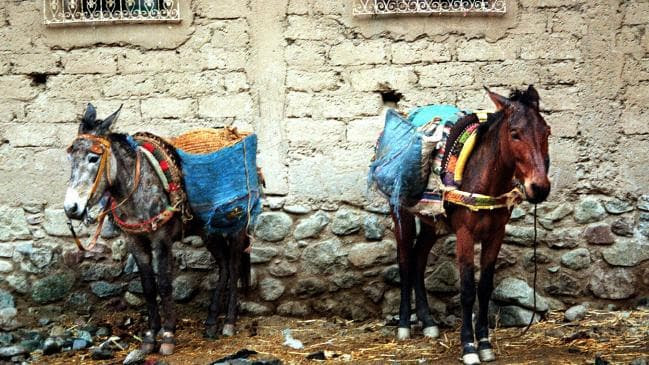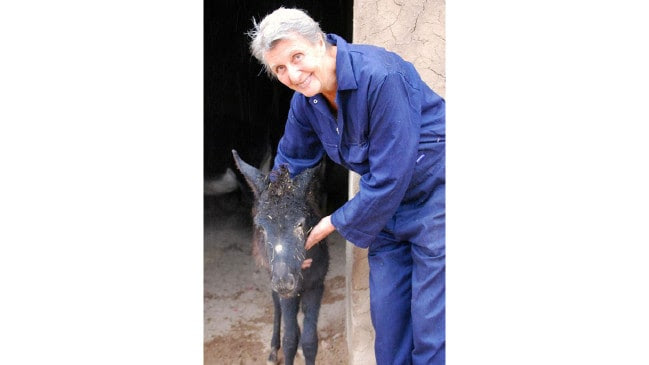The Australian
Lee Mylne
Life can be hard for the beasts of burden in Morocco.
It started with Tommy and Jenny, two donkeys in desperate need of each other, and of the kind of care that only a special place, and person, could provide. Tommy was only six months old when his plight came to the attention of Sue Machin, a retired English barrister who had moved to Morocco with her partner, Charles Hantom. While working as a volunteer for the Society for the Protection of Animals Abroad, a British charity dedicated to the welfare of working animals, Sue Machin met Tommy, the first donkey in Marrakech born by caesarean section. Before long, she had adopted the orphaned foal and moved him to her property near the village of Oumnass, in the foothills of the Atlas Mountains, about 25km south of the city.
“Tommy was horrendously difficult to manage, and a friend recommended that we get a female donkey [Jenny] to keep him company. A few months later they were joined by Jerry, whose mother had died in the village while giving birth to him, and so we had three pet donkeys,” Sue tells me.
Susan Machin at her Jarjeer Mule and Donkey Refuge, Marrakech. Picture: Lee Mylne.
Donkeys and mules are common sights in Morocco, hauling carts through streets, carrying baskets of bricks and concrete for construction work, and employed in agricultural work. Often, says Sue, these working animals are foals, less than three years old and unable to easily bear the heavy loads.
SPANA’s veterinary clinic in Marrakech treats about 1500 donkeys, mules and horses each month, and runs a free health check-up scheme for the hundreds of horses that pull caleche, or tourist carriages, around the city. The charity has also built nine water troughs on main routes so these tourist-trade horses have easy access to water.
Six years after adopting her first donkey, Sue’s Jarjeer Mule and Donkey Refuge is an orphanage, retirement home and care centre to 54 rescued animals, employing eight men to help look after them and maintain the stables.
Poverty and lack of education contribute to the mistreatment of donkeys and mules, and rescuing a donkey from the streets often means having to buy it. “That’s a dilemma,” says Sue. “A donkey might have cost the owner 500 dirham [$70] and we’ll add another 100 dirham … mules are more expensive.”









